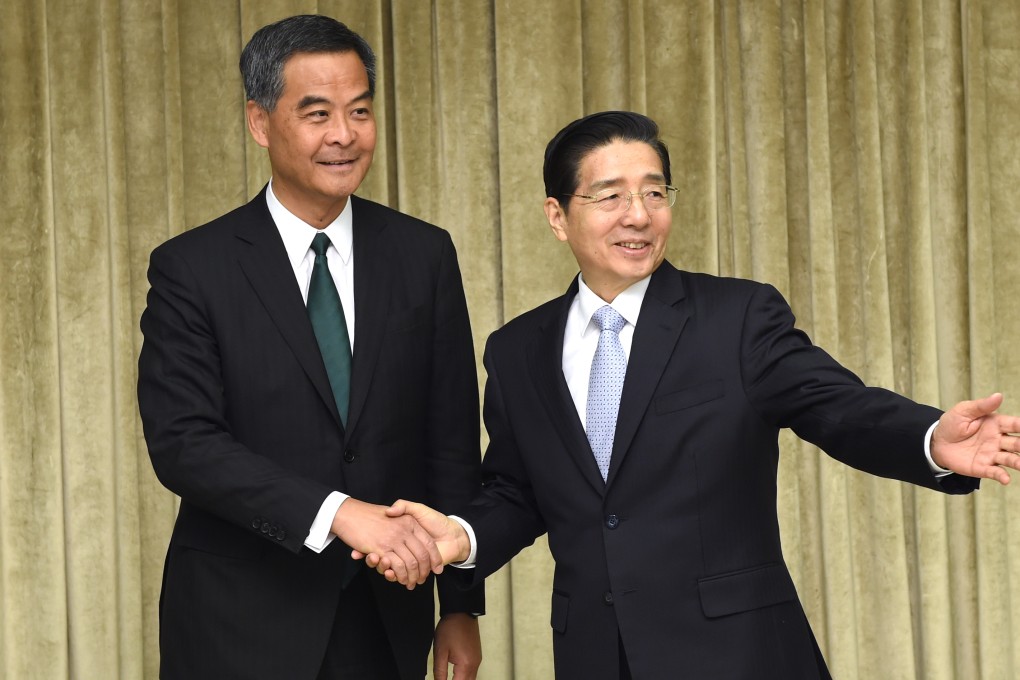Opinion | Where does Hong Kong stand in Li Keqiang's speech?
Frank Ching says any disagreements over Hong Kong are unlikely to hurt relations between China and Britain, judging by their words

When Premier Li Keqiang delivered his maiden report last year on the work of the government, he pledged to "unswervingly implement" the principles of "one country, two systems" and maintain Hong Kong's prosperity and stability.
Long-time observers noticed Li had left out words that had always been used in the preceding decade. These were that Hong Kong enjoyed a "high degree of autonomy", with "Hong Kong people governing Hong Kong". This led to speculation as to whether Beijing's policy towards Hong Kong had changed.
Last week, Li delivered the latest government work report and, this time, he affirmed all three principles.
He went on to say that Beijing would give its full support to the chief executive and the Hong Kong government. This signalled that Leung Chun-ying enjoys Beijing's full confidence as a result of his handling of the Occupy Central campaign, regardless of his lack of popularity in Hong Kong.
Li also said that Beijing would "strictly comply with the constitution" as well as the Hong Kong Basic Law. This was the first time that the Chinese constitution had been invoked in the Hong Kong context and elicited speculation as to what hidden significance there might be.
Strictly speaking, the constitution is internally contradictory. Article 31 authorises the establishment of special administrative regions, with systems to be "prescribed by law enacted by the National People's Congress in the light of specific conditions". However, other articles are worded in such a way as to indicate that they apply to the whole country. For example, Article 24 says the state conducts education "to combat capitalist, feudal and other decadent ideas". No exception is made for SARs.
